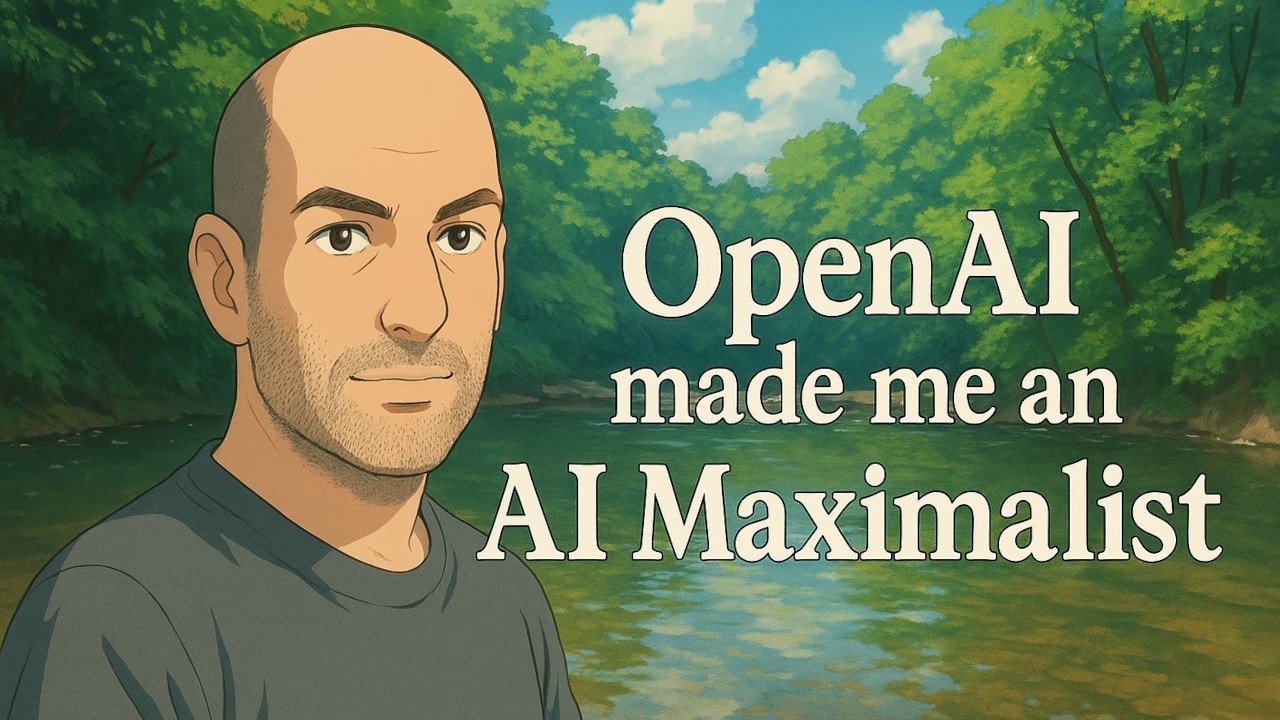The video advocates for “AI maximalism,” promoting the widespread integration of artificial intelligence across all aspects of life, akin to the universal use of electricity, while emphasizing the importance of experimentation and proactive adoption to harness AI’s transformative potential. The speaker argues that embracing AI can lead to significant improvements in sectors like healthcare and education, and calls for a cultural movement to support its integration into society and policy-making.
In the video, the speaker introduces the concept of “AI maximalism,” which advocates for the widespread integration of artificial intelligence across all domains of life, similar to how electricity is utilized universally. The speaker shares a personal experience of recovering from burnout with the help of OpenAI’s deep research tool, emphasizing the transformative potential of AI in addressing complex issues. They argue that skepticism surrounding AI is akin to limiting the use of electricity to specific sectors, which would be absurd. Instead, the speaker believes that AI should be embraced and deployed everywhere, as its eventual ubiquity is inevitable.
The speaker distinguishes AI maximalism from accelerationism, clarifying that while accelerationism focuses on speeding up technological development, AI maximalism is about saturating various aspects of life with AI. They acknowledge that not all AI applications will be successful, but experimentation is crucial to understanding its potential benefits and limitations. The speaker criticizes institutional gatekeeping and political ignorance, particularly among older politicians who may not fully grasp the implications of AI, arguing that this skepticism hinders progress and innovation.
The video highlights the historical context of technological adoption, comparing AI to electricity and other transformative technologies. The speaker asserts that the benefits of AI, such as improving healthcare and education, far outweigh the potential risks. They emphasize the need for proactive experimentation and integration of AI into various sectors, rather than allowing fear and hesitation to stifle progress. The speaker also addresses the dual-use nature of technology, acknowledging that while AI can pose risks, it can also provide solutions to many societal challenges.
The speaker discusses the economic imperative for AI deployment, arguing that businesses and governments must embrace AI to remain competitive and improve quality of life. They stress that delaying AI integration prolongs unnecessary suffering and that society should not shy away from exploring its potential. The speaker calls for a cultural movement around AI maximalism, encouraging individuals and organizations to adopt AI in their personal and professional lives, and to advocate for its use in institutions and policy-making.
In conclusion, the speaker urges viewers to embrace AI maximalism as a guiding philosophy for the future. They encourage personal adoption of AI tools, transformation of businesses through AI integration, and advocacy for pro-AI policies in government and institutions. By building a consensus around AI maximalism, the speaker believes that society can harness the full potential of AI to improve lives and drive progress, ultimately leading to a more innovative and prosperous future.
